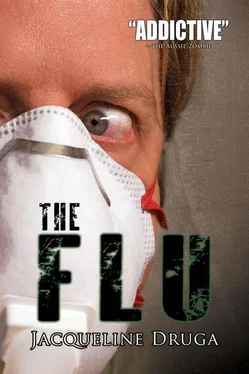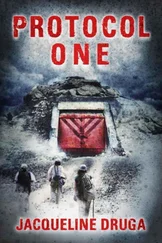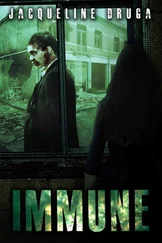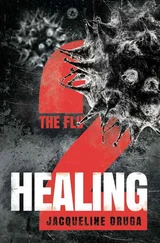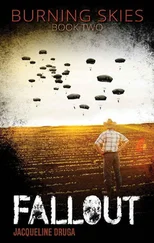For being there, listening, and inspiring,
this book is dedicated to my oldest child, Noah.
“If the epidemic continues its mathematical rate of acceleration, civilization could easily disappear from the face of the earth.”
—The Army Surgeon General, 1918
It takes many people to write a book. They are they backbone of drive for me. Because of that I wish to thank:
My children are my best inspiration. The love I have for them, no matter how many years go by, fuels my emotions in writing my books. My sons were very instrumental in character building.
Drew for just plain loving this book and all the support he has given me. My daughters, Ali and Roni, for reading this and giving feedback.
And finally Liz, you are an amazing woman and friend who has given me such support I don’t think I can express my gratitude enough. I honestly believe without your encouragement and belief in my work, people would not be reading this book. Thank you so much.
Blood, black like tar and thick enough to choke on, will seep forth from every orifice in the human body, the effects of internal organs literally melting from the infection and heat of the fever. Glands swell to the point of black bruising and eventual strangulation. Severe gangrene settles into limbs where circulation has ceased. Suffocation on body fluids, delirium, agonizing pain… death.
The plague.
To wake up one morning physically on top of the world, and be buried beneath every nightmare symptom imaginable, isn’t unthinkable.
When was the last incident of Bubonic Plague? To answer ‘hundreds of years ago’, would be incorrect. On average, every year, thirty-five people in the United States die of the plague; close to two thousand worldwide. But those are hardly frightening statistics.
What of the flu? Every single Fall it starts. Annually we are invaded by several strains. You hear about it, you get it. Coughing, sneezing, and fever—the whole works. You’re sluggish a few days; you go on and think nothing about it.
In March of 1918, neither did Private Albert Mitchell of Kansas. He went to work as a cook in an Army camp just before dawn. Feeling under the weather, Albert went to the infirmary and was diagnosed with the ordinary flu.
By midday, 522 other soldiers in that camp were symptomatic as well. Within two days, the infection had spread across Kansas; by week’s end, every state in the union was infected.
Spanish flu.
It took two months to make it across the Atlantic, and before a year had passed, nearly forty million people had succumbed to the Spanish Flu. Researchers say the reason it didn’t take more lives was because the flu lost strength the longer it was in circulation. But had the Spanish Flu reached the continent of Europe within one week of the first outbreak in the States, the human race could have easily faced extinction.
In 1918 the feat of traveling from Kansas to Moscow in less than one week was impossible.
Yet, today a man can wake up in Chicago and before his day is over he can be in London. And should that same man, asymptomatic in the quiet incubation stage, harbor a deadly airborne virus while on his transcontinental flight, he just started the next pandemic.
Needless to say, put all fear aside; after its wrath, the Spanish Flu vanished. Or did it? Nothing can be considered eradicated as long as it exists in laboratories throughout the world. However, we do not need for a lab accident to occur. Nor do we need for man to distribute it in the form of biological weaponry. Nature does quite well on its own.
The Spanish Flu appeared out of nowhere.
It happened before… it can happen again.
A whisper,
A hush,
Running full circle,
Quiet as a mouse it creeps in,
In a lion’s roar vengeance it stalks,
After the kill,
In a whimper it shall end,
Quiet as a mouse once more
Winston Research Station
16 Miles South Deadhorse, Alaska
August 17 th
There was something just a bit odd about the odor that flowed with the smoke that lifted high in the sky. Not only a signal of direction for Inez Johnson, it was also a sign of warmth.
Nobody else would have noticed the change in smell. Nobody else ever went out to the remote scientific research institute sixteen miles from his village. Inez was the only one. How long had he been doing the biweekly barter visits? Two years, three? Inez prided himself on coming up with the idea. It gave him a little extra money that forty-year old Inez needed for his wife and three young children.
Every other week he would load up with items: fish, baskets, furs, purses, things neighbors contributed to get in on the trade. He would take them on his sled, trudging the distance across the wilderness, no matter what the weather, alone except for his dogs
The people at the station expected him, welcomed and fed him. Usually someone would even be looking out for him. But something was wrong, Inez could tell. Not only was there a slightly tainted smell to the smoke, but there were no sounds.
The satellite dish that set atop of the building didn’t turn as it always did. It was buried beneath the snow that had fallen three days earlier. Inez even worried that the scientists had left. There was no movement, no footprints. Nothing.
He left his sled where he always did and made his way to the front entrance. He used his foot to clear away the snow enough for him to open the door. The second Inez stepped inside he knew something bad had happened here.
The putrid odor made his eyes water. The darkened building reeked of it. As he removed his hood, the silence was more noticeable.
Inez called out fearfully. No one answered. He listened closely; perhaps he had missed it. Someone had to be there, Inez knew it. Not only was the building semi-warm, but the sound of a softly crackling fire carried to him.
The smoke. A fireplace.
Inez went to the recreation room right off the entranceway where the fireplace was located.
Inez was an intelligent man. He could see there wasn’t any power and without power those in the station probably couldn’t run the heating unit. In order to stay warm, they probably gathered together in one room.
Inez was right.
The moment he stepped inside the room the smell worsened. It hit him hard along with the sight.
All sixteen workers were indeed there. They lay about, some on the sofa, most on blankets on the floor, all of them motionless, all appearing the same.
White faces, their necks blackened and swollen. A thick brown substance seeped from their mouths.
Inez trembled. Slowly he walked in. Removing the glove from his hand, he reached down and touched the body of a woman.
Cold. Hard. Dead.
He stumbled as he quickly retreated. His eyes shifted left to right around the room. All of them were dead. The fire smoldered rather than blazed. It hadn’t been long since it was ignited. And Inez saw the reason for the new smell that accompanied the outdoor smoke. By the fireplace was a man, half his body slumped into the fire; he had obviously tried diligently to stay alive.
Taking in his last look at the horror, seeing all he wanted to see, Inez ran from the station and never looked back.
Wadsworth, Ohio
August 18 th
His hand trembled, but only for a moment. With a twitch of his index finger, Jimmy Lewis depressed the trigger angrily and the side of Berchum Hayward’s head exploded. Before Berchum dropped to the floor, Jimmy grabbed him by the shirt.
Читать дальше
